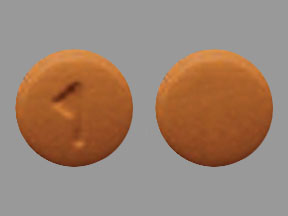Imatinib Disease Interactions
There are 7 disease interactions with imatinib.
- Cardiovascular disease
- Fluid retention
- Bone marrow suppression
- Gastrointestinal disorders
- Hepatic impairment
- Hypothyroidism
- Renal impairment
BCR-ABL tyrosine kinase inhibitors (applies to imatinib) cardiovascular disease
Moderate Potential Hazard, Moderate plausibility.
Cardiovascular events, including arterial vascular occlusive events, peripheral arterial occlusive events and ischemic cerebrovascular events have been reported in patients receiving tyrosine kinase inhibitors. If acute signs or symptoms of cardiovascular events occur, patients should seek immediate medical attention. The cardiovascular status and risk factors of patients should be evaluated prior to therapy and cardiovascular monitoring and management should take place during treatment.
BCR-ABL tyrosine kinase inhibitors (applies to imatinib) fluid retention
Moderate Potential Hazard, Moderate plausibility. Applicable conditions: Congestive Heart Failure, Pleural Effusion
Fluid retention occurs with BCR-ABL tyrosine kinase inhibitors therapy and may manifest as pericardial effusion, pleural effusion, pulmonary edema, and/or peripheral edema. Caution should be taken when using these drugs in patients with preexisting fluid retention or congestive heart failure. Monitor and manage patients using standards of care. Interrupt, reduce dose or discontinue therapy as necessary.
BCR-ABL tyrosine kinase inhibitors- bone marrow suppression
Moderate Potential Hazard, Moderate plausibility. Applicable conditions: Bone Marrow Depression/Low Blood Counts
Thrombocytopenia, aplastic anemia, agranulocytosis and neutropenia occur with BCR-ABL tyrosine kinase inhibitors. Therapy with these drugs should be administered cautiously in patients with preexisting bone marrow suppression. A complete blood count should be performed every 1-2 weeks for the first month of therapy and then monthly thereafter, or as clinically indicated. To manage myelosuppression, withhold, reduce dose, or discontinue therapy as necessary.
Imatinib (applies to imatinib) gastrointestinal disorders
Moderate Potential Hazard, Moderate plausibility. Applicable conditions: Gastrointestinal Perforation, Duodenitis/Gastritis
Imatinib has been sometimes associated with GI irritation, and it should be taken with food and a large glass of water to minimize this problem. There have been rare reports, including fatalities, of gastrointestinal perforation. Caution should be used in patients with history of GI disorders.
Imatinib (applies to imatinib) hepatic impairment
Moderate Potential Hazard, Moderate plausibility. Applicable conditions: Liver Disease
Patients with severe hepatic impairment tend to have higher exposure to both imatinib and its metabolite than patients with normal hepatic function, and dose might need to be adjusted accordingly. Additionally, there have been reports of hepatotoxicity both with short and long term use of imatinib. Liver function should be monitored before initiation of treatment and regularly during therapy. Dose reduction or interruption might be needed if laboratory abnormalities are found.
Imatinib (applies to imatinib) hypothyroidism
Moderate Potential Hazard, Moderate plausibility.
Hypothyroidism cases have been reported in thyroidectomy patients undergoing levothyroxine replacement therapy during treatment with imatinib. Caution should be used in these patients and TSH levels should be monitored closely.
Imatinib (applies to imatinib) renal impairment
Moderate Potential Hazard, Moderate plausibility. Applicable conditions: Renal Dysfunction
The mean exposure to imatinib is increased in patients with renal impairment compared to those with normal renal function. Dose reductions are necessary in patients with moderate and severe renal impairment.
Switch to professional interaction data
Imatinib drug interactions
There are 772 drug interactions with imatinib.
Imatinib alcohol/food interactions
There is 1 alcohol/food interaction with imatinib.
More about imatinib
- imatinib consumer information
- Check interactions
- Compare alternatives
- Pricing & coupons
- Reviews (48)
- Drug images
- Side effects
- Dosage information
- During pregnancy
- Drug class: BCR-ABL tyrosine kinase inhibitors
- Breastfeeding
- En español
Related treatment guides
Drug Interaction Classification
| Highly clinically significant. Avoid combinations; the risk of the interaction outweighs the benefit. | |
| Moderately clinically significant. Usually avoid combinations; use it only under special circumstances. | |
| Minimally clinically significant. Minimize risk; assess risk and consider an alternative drug, take steps to circumvent the interaction risk and/or institute a monitoring plan. | |
| No interaction information available. |
See also:
Further information
Always consult your healthcare provider to ensure the information displayed on this page applies to your personal circumstances.


